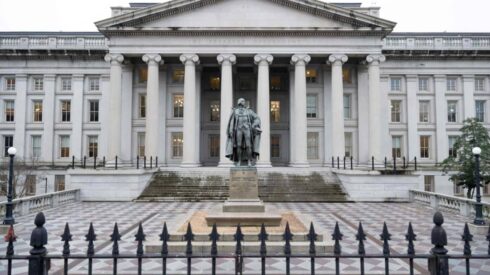The U.S. Treasury Department has confirmed a significant cybersecurity breach orchestrated by Chinese state-sponsored hackers, marking one of the most serious cyber intrusions in recent years. In a letter to lawmakers, Treasury officials revealed the hackers accessed unclassified documents by exploiting vulnerabilities in a third-party cybersecurity service provider, BeyondTrust. The breach highlights the growing sophistication of cyber threats targeting critical U.S. institutions.
Details of the Breach: How Hackers Exploited BeyondTrust’s Systems
The breach, first detected on December 8, 2024, involved the compromise of BeyondTrust, a Georgia-based cybersecurity company that provides remote support services. According to the Treasury Department, the hackers gained access to a critical digital key used by BeyondTrust to secure its cloud-based services. This allowed the attackers to override security measures, remotely access certain workstations of Treasury Departmental Office (DO) users, and retrieve unclassified documents stored on those systems.
BeyondTrust responded promptly, notifying the Treasury and law enforcement agencies while implementing measures to address the breach. In a statement, the company emphasized its cooperation with investigative authorities, noting that it had informed a limited number of affected clients and was actively supporting the probe into the incident. The incident underscores the vulnerability of trusted third-party services, which have become frequent targets for sophisticated cyber actors.
U.S. Agencies Respond: Collaboration with CISA and the FBI
In the aftermath of the breach, the Treasury Department collaborated with the U.S. Cybersecurity and Infrastructure Security Agency (CISA) and the FBI to assess the extent of the hack and its potential implications. Despite the rapid response, officials have yet to determine the full impact of the breach. Treasury representatives have refrained from providing additional details, while CISA directed further inquiries back to the Treasury.
Tom Hegel, a cybersecurity expert from SentinelOne, described the incident as part of a broader trend of cyber operations linked to the People’s Republic of China (PRC). He noted that Chinese hacking groups have increasingly targeted third-party services, exploiting their trust to infiltrate high-value targets. This pattern of activity signals a heightened threat landscape for both public and private sector organizations relying on outsourced cybersecurity solutions.
China Denies Involvement, U.S. Scrambles for Answers
The Chinese Embassy in Washington swiftly denied any involvement in the breach, accusing the U.S. of baseless accusations against Beijing. A spokesperson reaffirmed China’s opposition to cyberattacks and dismissed the claims as part of a larger campaign to tarnish China’s reputation.
As investigations continue, the breach has sparked renewed calls for strengthening cybersecurity measures across U.S. government agencies and their third-party providers. Experts warn that the incident serves as a critical reminder of the risks associated with outsourcing sensitive operations and underscores the importance of stringent security protocols to safeguard against emerging threats.
Hackers Focused on Espionage, Not Financial Theft
While the incident has raised concerns about potential data loss, officials clarified that the hackers appeared focused on gathering information rather than stealing funds. The breach reportedly allowed the attackers to remotely access user accounts and potentially alter credentials during their access window.
Treasury officials assured lawmakers and the public that their systems are being fortified against future intrusions. “The Treasury Department takes very seriously all threats against our systems and the data it holds,” a spokesperson said, adding that a supplemental report will be submitted to Congress within 30 days.
A Pattern of High-Profile Breaches
This latest cyberattack is one in a series of significant breaches attributed to Chinese hackers. In December, a separate attack targeted U.S. telecom companies, compromising phone record data on a massive scale. These recurring incidents have highlighted vulnerabilities in critical infrastructure and heightened tensions between the U.S. and China over alleged state-sponsored cyber activities.
As investigations into the Treasury Department hack continue, experts warn that more robust cybersecurity measures are essential to protect sensitive government data from persistent threats.
A Growing Challenge for National Security
The Treasury breach exemplifies the evolving nature of cyber threats, with state-sponsored actors increasingly targeting trusted intermediaries. Such attacks not only compromise sensitive information but also expose systemic vulnerabilities that adversaries can exploit.
This latest incident adds to a growing list of cybersecurity challenges facing the U.S., emphasizing the urgent need for comprehensive strategies to mitigate risks posed by advanced persistent threats. As federal agencies work to bolster their defenses, the incident serves as a stark warning of the complexities involved in securing the digital infrastructure critical to national security.














